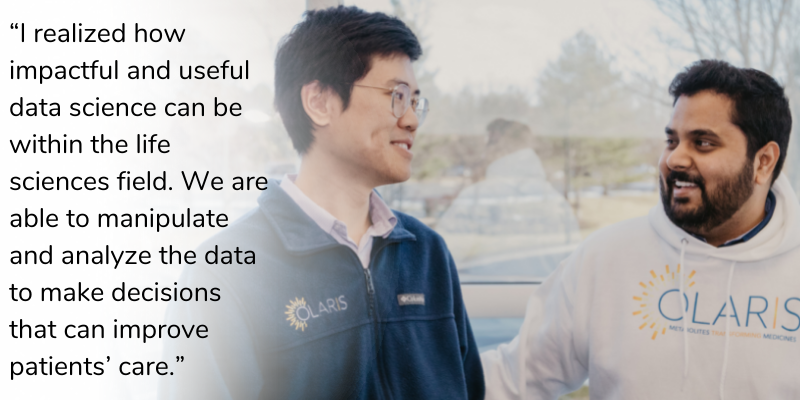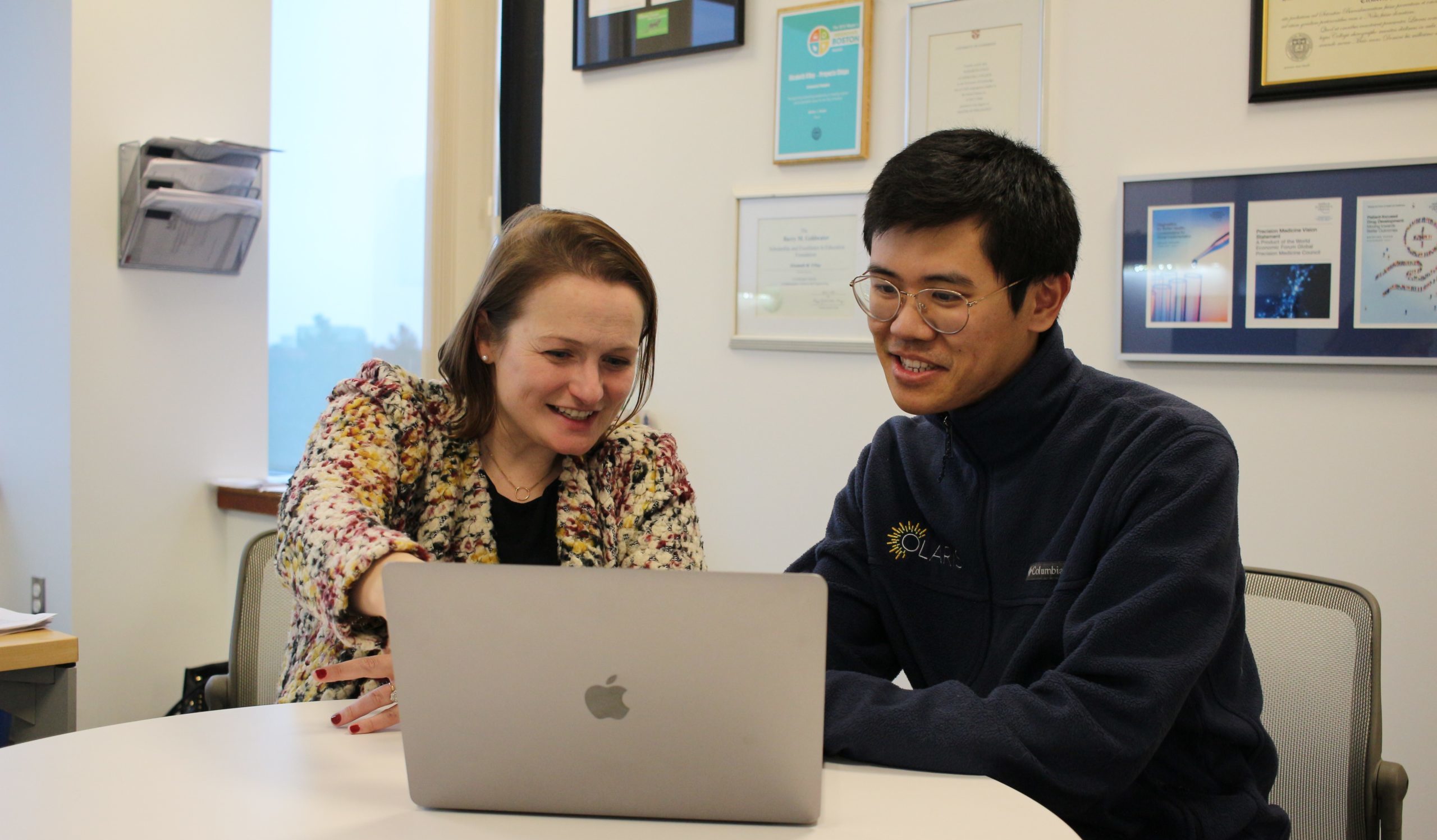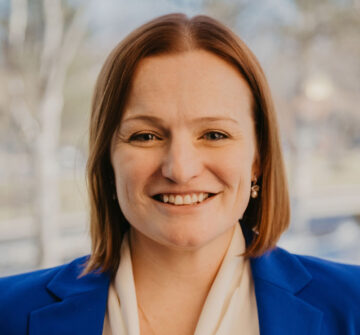Olaris, Inc., founded in 2014 by Elizabeth “Liz” O’Day, Ph.D., aims to revolutionize how we diagnose and treat patients with life threatening diseases. Put simply, its goal is to “get the right therapy to the right patient at the right time”. In 2018, Olaris was an inaugural awardee of the Massachusetts Life Sciences Center (MLSC) Massachusetts Next Generation Initiative (MassNextGen), a competitive program for women-led life sciences companies.
Olaris is now based in Framingham, Massachusetts as part of the thriving MetroWest life sciences cluster. Its growing team includes Chen Dong, who after interning with Olaris and receiving his master’s degree in bioinformatics, joined the company full-time as a Data Scientist.
Chen played a key role in Olaris’ recent study on Parkinson’s Disease. Research shows that nearly 1 in 3 people with Parkinson’s are misdiagnosed. Moreover, many patients do not receive a diagnosis until after they have lost the majority of their dopamine-producing brain cells. The study demonstrates Olaris’ use of metabolites to create a signature of Parkinson’s development in patients with a genetic link. Improving understanding of what changes in the metabolome of patients with Parkinson’s offers significant potential for improving the patient diagnostic journey.
“I am very proud of the hard work of our collaborative team,” said Chen, who in addition to earning his master’s degree from Harvard Medical School in bioinformatics has a bachelor’s degree in biomedical engineering from Boston University. “This study not only sets a milestone for Parkinson’s discovery but also highlights all of Olaris’ core values—accountable to science, strive for better, and revolutionary impact.”
Chen’s internship was made possible through the MLSC’s Internship Challenge, which enhances the talent pipeline for the Massachusetts life sciences industry by creating hundreds of new internship opportunities each year for college students and recent graduates interested in life sciences careers. This workforce development program connects employers with prospective interns through an online platform and enables eligible companies to pay their interns for up to twelve weeks by subsidizing intern wages.

As a data scientist at Olaris, Chen develops and optimizes data analysis pipelines and tools for the team. He works closely with the metabolite science team to find “Biomarkers of Response” to enable clinicians to make optimal treatment decisions. Chen also had the privilege of presenting Olaris’ breast cancer research findings at international conferences such as the San Antonio Breast Cancer Symposium (SABCS).
“Within a couple of weeks, we quickly realized how valuable of a contributor Chen was going to be for our team,” said Liz. “He’s grown so much from intern to Data Scientist III, and he’s part of some of our most important projects. Companies like ours require a specific type of data scientist who can lend their skills to life sciences. We need people who bring both a rigorous understanding of statistics and machine learning models, but also learn the nuances of biology to help their team develop more innovative products. Chen does this all the time.”
Chen’s interest in data science crystalized while at Harvard Medical School. For him, data science had that “everything” factor he was looking for to pursue a career in an interdisciplinary field like the life sciences.
“I love mathematics, statistics, programming, and biomedical science,” said Chen. “Data science is like an everything bagel that combines them all together. I realized how impactful and useful data science can be within the life sciences field. We are able to manipulate and analyze the data to make decisions that can improve patients’ care.”
Chen started as an intern at Olaris in 2019 when it was a team of just four people. His project was designing and implementing a series of tools for interactive data analysis and visualization. It all clicked for Chen when he realized that his contribution to the science made a practical impact and drove the company’s growth. It helped solidify his passion in data science – and it all started with an internship.
“I think internships are valuable because they provide an exploring and learning opportunity to see how the company operates and how different teams collaborate,” said Chen. “Having just earned my master’s, I was able to use and sharpen my data analysis skills at Olaris right away.”
Since the program’s inception in 2009, the MLSC’s Internship Challenge has funded more than 5,000 internships with more than 920 companies for students from 250 different academic institutions. Nearly 40 percent of interns that completed college were offered employment directly following their internship. More recently, the Center launched its Data Science Internship Program, focused on increasing the availability of data science talent in the life sciences. The program creates new internship opportunities for qualified candidates, including those at the Bachelor’s, Master’s, and Doctoral levels, by enabling research institutions and companies to hire paid interns for up to six months.



